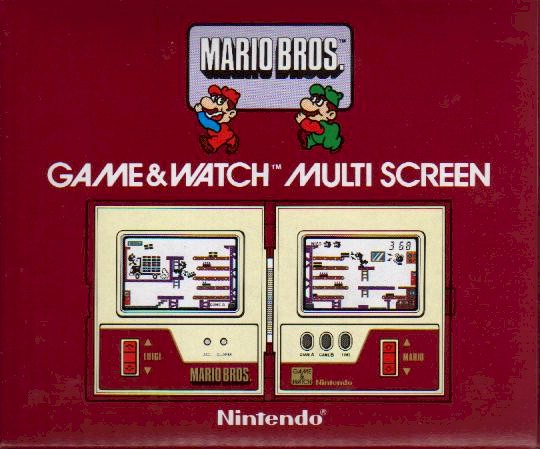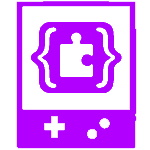“The goal isn’t just to finish the race of life, but to finish the race with nothing left to give”
-John R. Wood: Ordinary Lives, Extraordinary Mission
Video game analogies
Thought experiment time. If you had to describe your life as a video game (pick a gameplay mechanic, theme, story, character, etc.) what would you choose? For me it would be one of the earliest games I ever played, the “Mario Bros” Game and Watch multi-screen game. In the game (pictured below) you control Mario and Luigi at a bottling plant filling boxes that are moving back and forth on multiple vertical levels before finally loading them on a truck. The gameplay mechanic of controlling each brother up and down separately, thinking ahead to when a box would need to be caught by one of the brothers, and the patterns of movement clicked with me from an early age. How do you see your life as a video game analogy?

Every week / month I hear developers, public speakers, etc. discussing “don’t live your life by default“, “start with why“, and more. I’ll propose my own “phrase to live by” into the mix.
Live life asynchronously.
Live life asynchronously
Let me expand upon this idea a little bit further.
Asynchronous means not occurring at the same time, as in computers and programming when a method begins but releases control until it signals back to the system that the asynchronous method is finished.
In real life there are many tasks that can be started and then picked up when they have completed: laundry, cooking a meal, charging batteries, compiling code, etc. The interesting part is to figure out when you can start one task and know that it will be ready to pick back up when it is done.
Personally I know that I can start a load of dishes in the dishwasher right after dinner and have them ready to put away shortly before bed. When I get home from work I can play a game of chase around the house with my older kids and find toys / books / clothes that need to be picked up (doubles as some exercise for all of us).
The other aspect of doing things asynchronously is that it forces you to think about your future self (and others). By doing X now I know that in Y hours / days / weeks I’ll be ready to finish it. This ties in to investing (financially, academically, etc.) as well. I could buy a fancy new electronic gadget now, or I could put that money towards my retirement account / kids’ school costs / donation to charity or plenty of other future needs.
Despite the natural tendency for some folks to minmax the optimal set of tasks that can be completed in a given 24 hr period, the first two words of the phrase mean the most: “live life”. I’ve never thought to myself “I’m glad I fit in those additional 5 chores around the house today at the expense of spending time with my wife or kids”. Go on and live life with people first.
MakeCode Arcade

Recently I found a cool retro game programming platform called MakeCode Arcade. MakeCode Arcade is free, open-source, and entirely accessible through a browser with no installs required. Similar to MIT’s Scratch offering you can build games using predefined blocks (or JavaScript if you feel like going advanced) that include game logic, sprites, animations, controller input, and more. You can also play your own games or a whole host of community games through the browser or download your games to a number of hardware devices (most cost less than $40 last I checked). If you feel like collaborating you can also share your projects on GitHub for others to enjoy and work on. I’m looking forward to introducing MakeCode Arcade to my daughter this year to see what she comes up with.
On a similar note I’ve also grown very interested in chiptune music and how it is created. One of my favorite “artists” is Rich Vreeland who goes by the name Disasterpeace. I highly recommend these albums:
If you are interested in creating your own chiptune music you can find a handful of tools below. Even though this article says for Windows 10 there are offerings that also have versions for Mac and Linux.
Chiptune music creators for Windows 10
https://www.ilovefreesoftware.com/19/windows-10/chiptune-music-creator-windows-10.html
Have you tried out any fun retro gaming platforms or found good chiptune music? Share back if so.
-Frog Out












